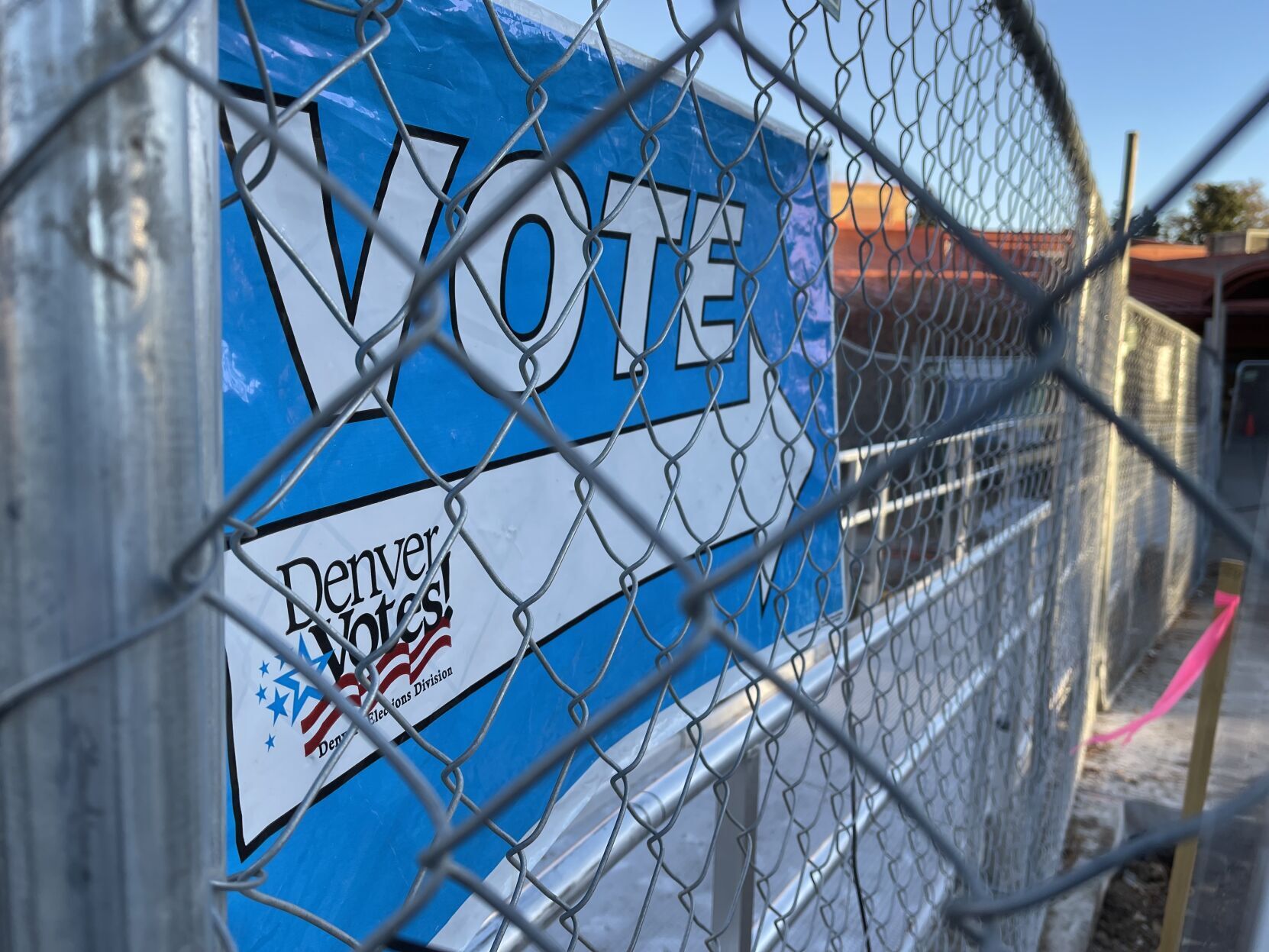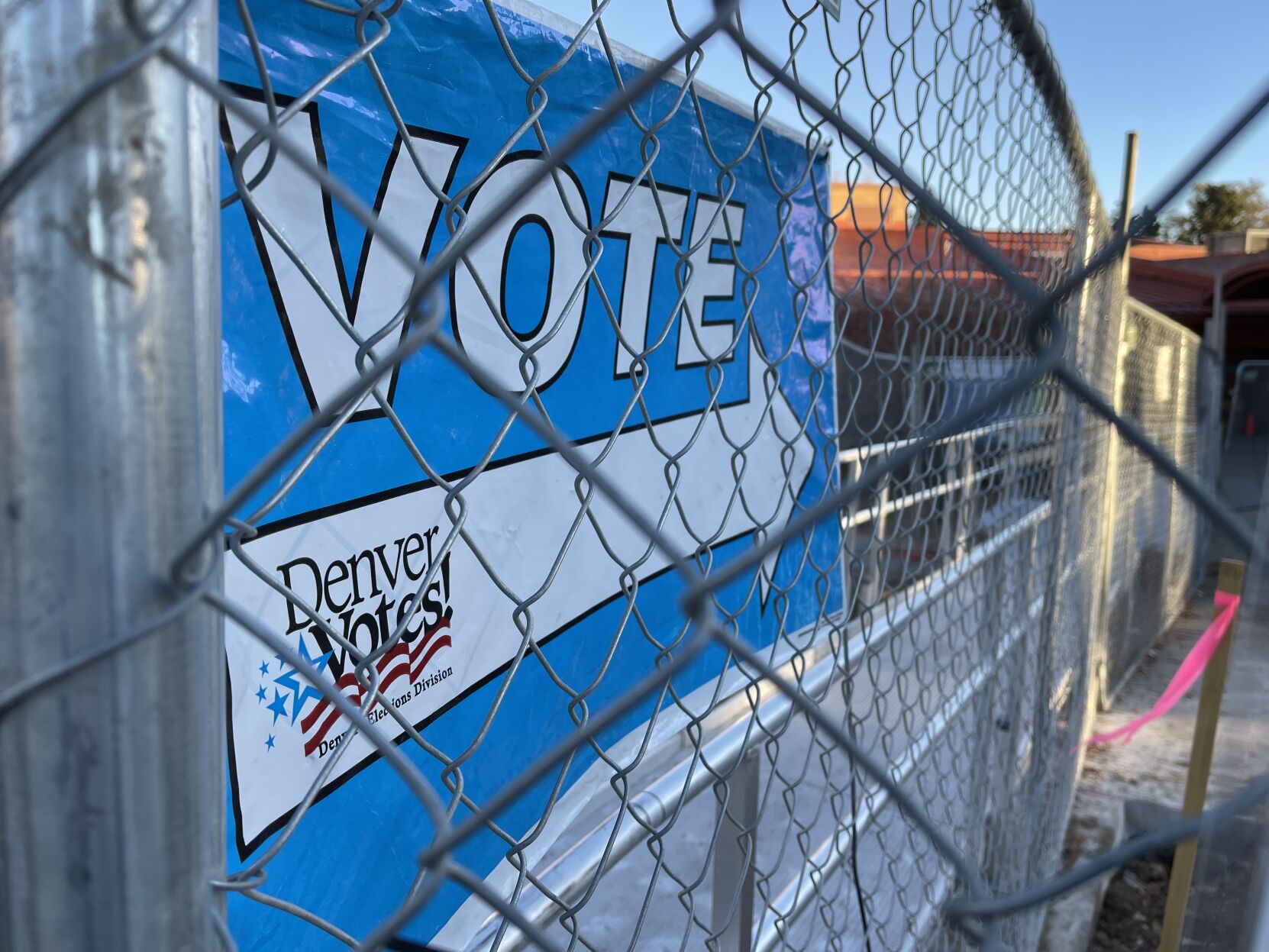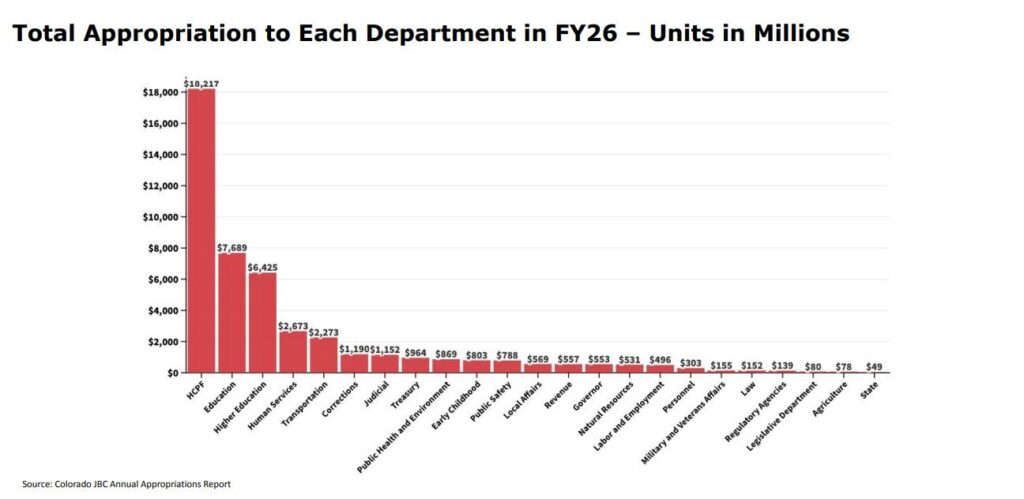Winners, losers stack up in Colorado’s 2023 election

Turnout lagged in Colorado’s off-year election with only two questions on the statewide ballot, but a few trends emerged as voters weighed in on a host of municipal and school board contests and local ballot measures.
Unsurprisingly, the marquee Proposition HH – the only statewide ballot question that drew significant attention – went down hard, losing by roughly 20 points, the unofficial returns showed.
Referred to the November ballot by the Democratic-controlled legislature and backed by Gov. Jared Polis, the sweeping measure was mocked as a Rube Goldberg contraption that confused voters by promising to soften the blow on property tax increases by reducing Taxpayer’s Bill of Rights refunds, while simultaneously redirecting funds to rental assistance and K-12 education, among numerous other provisions.
Here’s a look at some of the preliminary winners and losers:
Winner: TABOR
The controversial constitutional amendment turned 30 last year, but even though its legions of detractors hold all the levers of state government, the measure restricting government spending still has plenty of bite to it, as voters demonstrated by rejecting Proposition HH by a convincing, double-digit margin.
Billed by supporters as a “nuanced, balanced policy” that would have revamped state and local tax policy on multiple fronts, HH fell prey to a consistent attack from opponents that focused primarily on its effect on TABOR refunds.
Both sides poured millions into the HH campaign, but those in favor were on their heels from the start, playing defense as opponents hammered a simple theme: “No to stealing our TABOR refunds!” blared Advance Colorado’s Kristi Burton Brown on X, the platform formerly known as Twitter.
The message – derided by HH backers as a “misinformation slogan campaign” – landed hard with voters.
According to unofficial returns, the measure only passed in six of the state’s 64 counties, led by liberal enclaves Denver and Boulder. It went down hard in the suburban Front Range counties that have trended blue in the last decade. Voters in Jefferson, Arapahoe, Adams and Larimer counties gave HH the thumbs down by about the same margin it failed statewide.
Loser: Property taxpayers
It’ll be up to Polis and the Democratic-controlled General Assembly to come up with solution to the enormous tax hikes on tap next year, as the state’s recent roaring housing market catches up to property tax bills.
Before the ink was dry on early election returns, HH opponents were demanding that Polis call a special session, but Polis, who was out of state at a Western Governors Association meeting, said in a statement only that he was “currently considering next steps.”
Winner: The Republicans’ messaging machine
Colorado voters have been giving Republican candidates the cold shoulder for the past few election cycles, but a coalition of GOP-aligned groups – given voice by Republican state lawmakers Barb Kirkmeyer and Rose Pugliese – proved that they can still cut through the clutter.
It didn’t help HH proponents that the complex ballot measure was hard to understand – with its Blue Book description running to 12 pages – or that campaigns on both sides took hits for misleading ads, but it turned out that the anti-HH message resonated.
Loser: The Colorado Democrats’ super-majority
It was a good night for Democrats elsewhere in the country – Kentucky Gov. Andy Beshear held on to his seat in a deep red state, while Democrats took surprise control of the legislature in Virginia – but the party’s leaders in Colorado wound up on the losing side as HH, their signature issue this round, went down in flames.
In a state where Democrats hold historic majorities in both chambers of the legislature and haven’t had to deal with Republicans, Colorado voters reminded them that there are still plenty who don’t believe the Democrats always know best.
Detractors knocked HH’s authors for failing to reach out to local governments when they crafted the referred measure as the legislative session roared to a conclusion this spring. That came back to bite in the fall, as groups representing counties and other localities came out against the measure purportedly designed to benefit them.
Winner: Sin tax revenue
Coloradans aren’t reluctant to let the state spend excess revenue when it’s collected in so-called “sin” taxes, as they made clear yet again Tuesday by passing Proposition II by an overwhelming margin.
The measure, referred to the ballot by the legislature, allows the state to spend additional revenue – estimated at upward of $23 million in the upcoming fiscal year – collected under a 2020 ballot measure that increased taxes on tobacco and established a tax on other nicotine products. The revenue from the earlier measure bolstered state spending on preschool programs, plus K-12 education, affordable housing, anti-smoking measures and other initiatives.
Instead of refunding the surplus to taxpayers next year, as would be required under TABOR without a vote, the state will put the money in a separate fund dedicated to the state’s universal preschool initiative.
Winner: Incumbent mayors
It was a good night to be a mayor running for reelection in Colorado’s larger cities – or at least in the ones that elect municipal leaders in November.
While voters in Denver and Colorado Springs, the state’s largest and second-largest cities, ushered in fresh faces at city hall this spring – Mike Johnston took over from term-limited Mayor Michael Hancock in Denver, and Yemi Mobolade stepped in for term-limited Mayor John Suthers in Colorado Springs – voters in the state’s next several most populous cities will be welcoming their current mayors back to office for additional terms.
Aurora, Colorado’s third-largest city, reelected Mayor Mike Coffman, the former Republican congressman, who easily fended off a challenge from Councilman Juan Marcano, a Democrat, in the nonpartisan election.
In Fort Collins, Mayor Jeni Arndt, a former Democratic legislator, walked to another term without opposition, while in Lakewood, Mayor Pro Term Wendi Strom succeeds outgoing Mayor Adam Paul after defeating her opponents by double digits. In Thornton, Mayor Jan Kulmann, who ran unsuccessfully for Congress last year as a Republican, won reelection by a comfortable margin.
Winner: Colorado’s voting system
Whether it’s the “gold standard” or not probably depends on your political persuasion, but there’s no question that Colorado’s mail ballot voting system makes the state one of the easiest places in the country to cast a ballot.
Compared to residents of states that saw long lines at the polls and scattered obstacles to voting, Coloradans have become used to voting at their kitchen tables and returning their ballots at their leisure. Voters are also able to track their ballot’s progress at every step, getting emails and text messages when election officials send them out, receive them and process them for counting.
One measure of the Colorado system’s popularity: By late Tuesday, just close to 23,000 Coloradans had chosen to vote in person, just over 1% of the nearly 1.7 million who filled out their paper ballots and either put them in the mail or deposited them in drop-boxes. For all the complaints expressed by critics of mail ballots, it’s clear voters overwhelmingly appear to prefer the method.
Loser: Voter engagement
As of 3 p.m. on Election Day, statewide turnout had just barely topped 32%, with just short of 1.3 million of Colorado’s nearly 4 million active, registered voters returning their ballots. By late Tuesday, the number had climbed to nearly 1.7 million, for a turnout of 42% – edging past the roughly 40% of voters who voted in the previous off-year elections in 2021 and 2019.
That pattern suggests that more voters than usual waited until the last minute to drop off their ballots – possibly due to indecision over the big statewide question on an otherwise sparse ballot, along with voter fatigue in the face of a seemingly never-ending election cycle.














